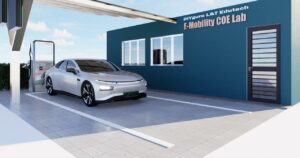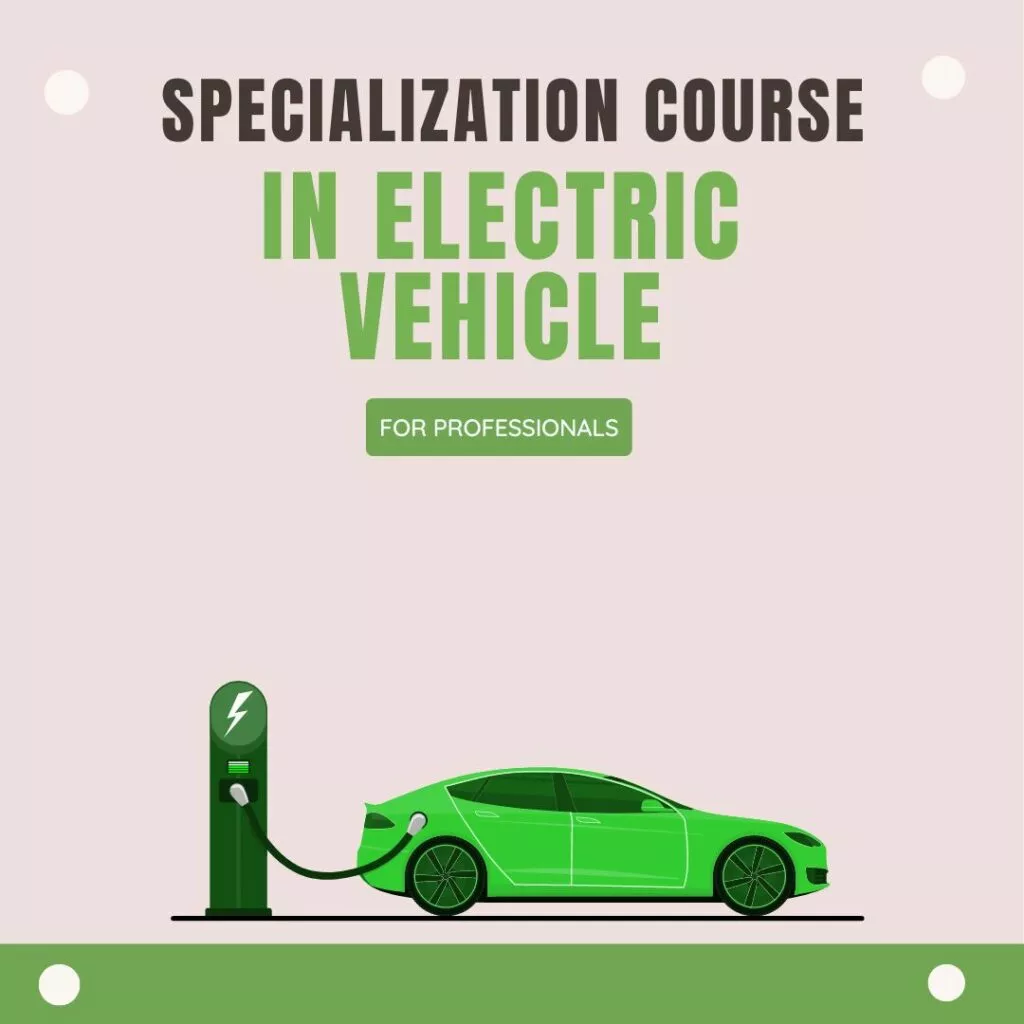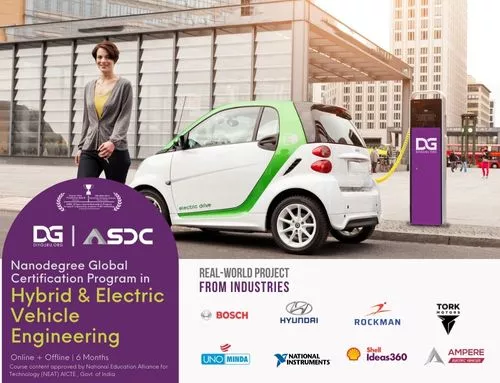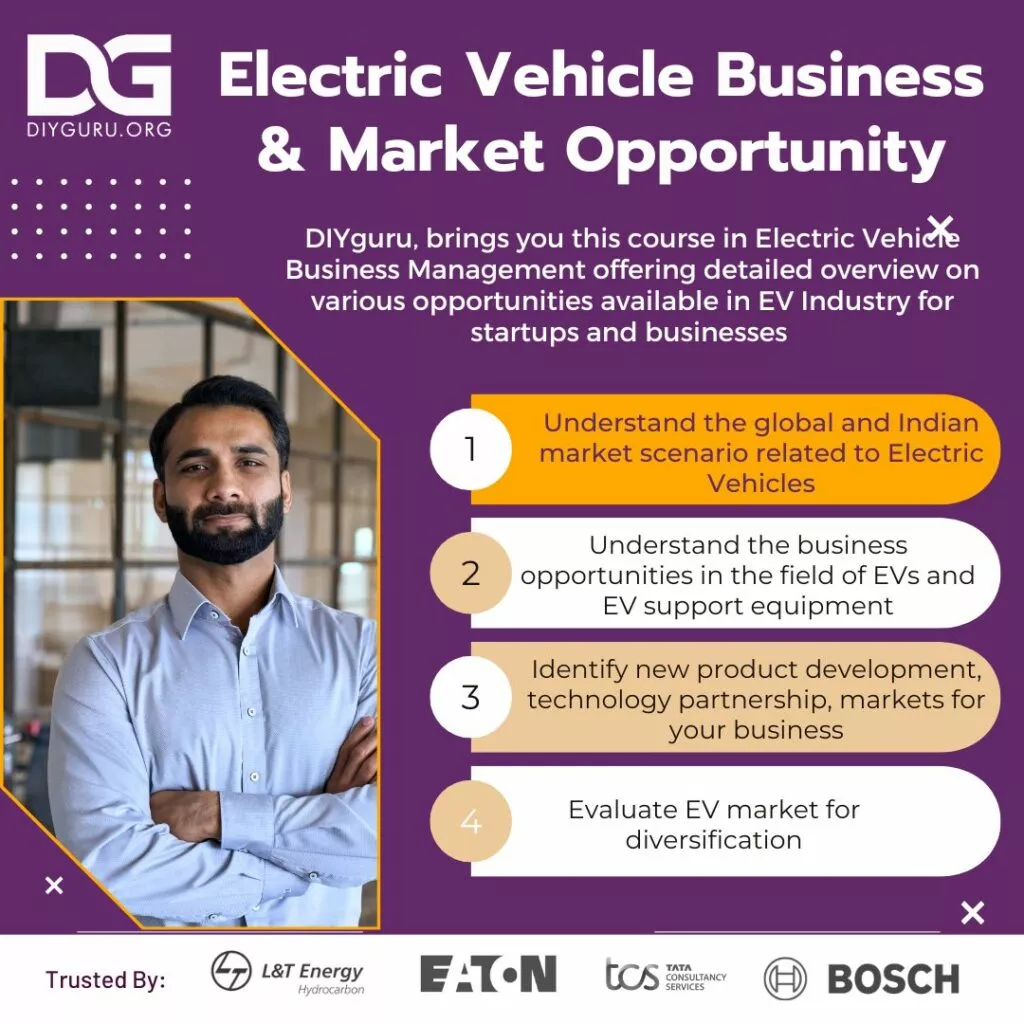Introduction:
As the world becomes more conscious of its impact on the environment, electric vehicles (EVs) are becoming increasingly popular. EVs are vehicles that run on electric motors powered by rechargeable batteries instead of traditional internal combustion engines. In this blog post, we will explore electric vehicles, how they work, and their benefits.
What is an Electric Vehicle?
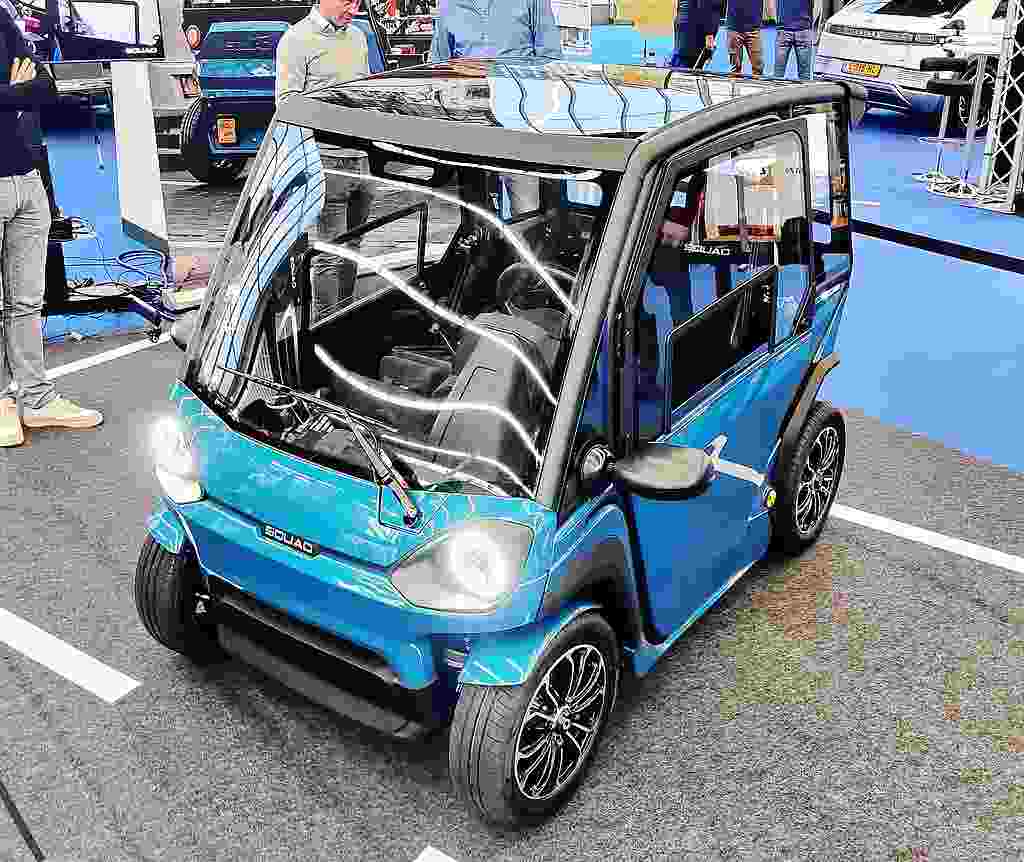
An electric vehicle is a vehicle that runs on electric motors powered by rechargeable batteries instead of traditional internal combustion engines. Electric vehicles are becoming increasingly popular due to their environmental friendliness and energy efficiency. They produce fewer emissions and are less expensive to operate than traditional vehicles.
The electric vehicle (EV) industry is growing rapidly, and with it, the need for skilled professionals. EVs are more complex than traditional gasoline-powered vehicles, and they require specialized knowledge to service and repair them.
There is currently a global shortage of skilled EV technicians. This is due to a number of factors, including the rapid growth of the EV industry, the lack of standardization in EV technology, and the retirement of experienced technicians.
The skills gap in the EV industry is a major challenge for businesses and governments. Businesses need skilled technicians to maintain and repair their EV fleets, while governments need skilled professionals to help implement their EV policies.
Why EV upskilling is the need of the hour
There are a number of reasons why EV upskilling is the need of the hour:
- The EV industry is growing rapidly. Global EV sales are expected to reach 26 million by 2030. This growth will create a massive demand for skilled EV technicians.
- EVs are more complex than traditional gasoline-powered vehicles. EVs have a number of unique components, such as batteries, electric motors, and power electronics. Servicing and repairing EVs requires specialized knowledge and skills.
- There is a lack of standardization in EV technology. Different EV manufacturers use different technologies. This makes it difficult for technicians to learn how to service and repair all types of EVs.
- Experienced technicians are retiring. Many experienced automotive technicians are retiring, and there is a shortage of young people entering the trade. This is creating a skills gap in the automotive industry, which is particularly acute in the EV sector.
How DIYguru courses can help fill the skill gap
DIYguru offers a range of online courses in EV technology. These courses are designed to help students learn the skills they need to service and repair EVs. DIYguru courses are accredited by AICTE and ASDC, and they are taught by industry experts.
DIYguru’s EV courses cover a wide range of topics, including:
- Battery technology and management
- Electric motors and power electronics
- EV charging infrastructure
- EV diagnostics and troubleshooting
- EV repair and maintenance
DIYguru’s courses are designed to be flexible and affordable. Students can learn at their own pace and on their own time. DIYguru also offers financial assistance to students who need it.
Benefits of upskilling in EV technology
There are a number of benefits to upskilling in EV technology:
- Increased job opportunities: The demand for skilled EV technicians is high and is expected to grow in the coming years. Upskilling in EV technology can make you more marketable and increase your job opportunities.
- Higher salaries: Skilled EV technicians earn higher salaries than traditional gasoline-powered vehicle technicians.
- Career advancement: Upskilling in EV technology can help you advance your career. You can move into more senior positions or start your own business.
- Job satisfaction: Working on EVs can be more rewarding than working on traditional gasoline-powered vehicles. EVs are cleaner and more efficient, and they are helping to reduce our reliance on fossil fuels.
If you are interested in a career in the EV industry, upskilling is essential. DIYguru offers a range of online courses in EV technology that can help you learn the skills you need to succeed.
Comparison of Electric Vehicle Courses in India
Here is a comparison of some of the most popular EV courses in India:
| Institution | Course | Duration | Fees | Accreditation |
|---|---|---|---|---|
| DIYguru | Electric Vehicle Nanodegree Program | 12 months (Most comprehensive) | INR 70,000 | AICTE, ASDC (Global Degree Certification) |
| IIT Delhi | Electric Vehicle Engineering Certification Program | 6 months (Theoretical) | INR 1 lakh | IIT Delhi (Professional Certification) |
| Symbiosis Institute of Technology | Electric Vehicle Certification Course | 3 months (Short Term) | INR 30,000 | Symbiosis Institute of Technology (Certification) |
| Skill Lync | Electric Vehicle Design & Analysis Course | 6 months (Software Based) | INR 2,50,000 | Skill Lync (Certification) |
Highlights of DIYguru Electric Vehicle Nanodegree Program
- Comprehensive and industry-relevant curriculum
- Hands-on training through state-of-the-art EV labs
- Placement support from leading EV companies
- Affordable fees
- Flexible learning options
DIYguru’s Electric Vehicle Nanodegree Program is the best EV course in India for the following reasons:
- It is the most comprehensive EV course in India, covering all aspects of EV technology from battery technology to EV charging infrastructure.
- It offers hands-on training through state-of-the-art EV labs, which is essential for developing the skills needed to service and repair EVs.
- It provides placement support from leading EV companies, which helps students get jobs in the EV industry after completing the course.
- It is very affordable, making it accessible to a wide range of students.
- It offers flexible learning options, so students can learn at their own pace and on their own time.
If you are serious about a career in the EV industry, DIYguru’s Electric Vehicle Nanodegree Program is the best course for you. It will give you the skills and knowledge you need to succeed in this rapidly growing field.
Types of Electric Vehicles
There are three main types of electric vehicles: battery electric vehicles (BEVs), plug-in hybrid electric vehicles (PHEVs), and hybrid electric vehicles (HEVs). BEVs are fully electric and rely solely on a rechargeable battery to power the electric motor. PHEVs have both an electric motor and an internal combustion engine. The electric motor is powered by a rechargeable battery, while the internal combustion engine is used to extend the vehicle’s range. HEVs have both an electric motor and an internal combustion engine, but the battery is charged by the internal combustion engine and regenerative braking.
How Electric Vehicles Work
Electric vehicles work by using a rechargeable battery to power an electric motor. The battery is charged by plugging the vehicle into an external power source, such as a charging station or a wall outlet. Once charged, the battery provides power to the electric motor, which turns the wheels and propels the vehicle forward.
Benefits of Electric Vehicles:

Electric vehicles offer several benefits over traditional gasoline-powered vehicles. First and foremost, they are much better for the environment. Since electric vehicles run on electricity, they produce little to no emissions, which helps reduce air pollution. Additionally, electric vehicles are more energy-efficient than traditional vehicles, which means that they require less energy to run.
Another benefit of electric vehicles is that they are much cheaper to operate than traditional vehicles. Since electricity is much cheaper than gasoline, the cost of charging an electric vehicle is significantly lower than the cost of filling up a gas tank. Additionally, electric vehicles require less maintenance than traditional vehicles, which means that they are more cost-effective over the long term.
Challenges of Electric Vehicles:
While electric vehicles offer many benefits, there are also some challenges that come with owning one. One of the biggest challenges is the limited range of electric vehicles. While electric vehicles are becoming more advanced and have longer ranges than ever before, they still can’t match the range of a traditional gasoline-powered vehicle.
Another challenge is the lack of charging infrastructure. While there are more and more charging stations popping up every day, there are still many areas where charging an electric vehicle can be difficult or impossible. This can make it difficult for electric vehicle owners to take long road trips or travel to remote areas.
Conclusion:

Electric vehicles offer a promising solution to the environmental and economic challenges facing the automotive industry. While there are still some challenges to overcome, electric vehicles are becoming more advanced and more popular every day. With continued research and development, electric vehicles have the potential to revolutionize the way we think about transportation and help create a more sustainable future.
FAQs:
Q1. What is an electric vehicle?
Ans. An electric vehicle is a vehicle that runs on electric motors powered by rechargeable batteries instead of traditional internal combustion engines.
Q2. How are electric vehicles different from traditional vehicles?
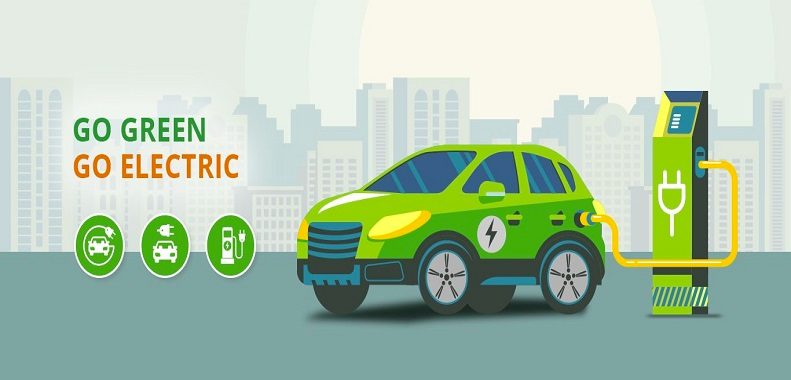
Ans. Electric vehicles are powered by electricity, while traditional vehicles are powered by gasoline or diesel fuel. Electric vehicles produce little to no emissions and are more energy-efficient than traditional vehicles.
Q3. Are electric vehicles more expensive than traditional vehicles?
Ans. The initial cost of electric vehicles is typically higher than that of traditional vehicles. However, the cost of operating an electric vehicle is significantly lower than that of a traditional vehicle, as electricity is cheaper than gasoline.
Q4. How long does it take to charge an electric vehicle?
Ans. The time it takes to charge an electric vehicle depends on the size of the battery and the power of the charging station. A typical home charging station can take several hours to fully charge an electric vehicle, while a fast-charging station can charge a vehicle in as little as 30 minutes.
Q5. How far can an electric vehicle travel on a single charge?
Ans. The range of an electric vehicle depends on the size of the battery and the driving conditions. Most electric vehicles can travel between 100 and 300 miles on a single charge.
Q6. Can I charge an electric vehicle at home?
Ans. Yes, electric vehicles can be charged at home using a standard 120-volt outlet or a 240-volt charging station.
Q7. How long do the batteries in electric vehicles last?
Ans. The lifespan of an electric vehicle battery depends on several factors, including the type of battery, the size of the battery, and the way the vehicle is driven. Most electric vehicle batteries last between 8 and 10 years.
Q8. Are electric vehicles safe to drive?
Ans. Yes, electric vehicles are just as safe to drive as traditional vehicles. In fact, many electric vehicles have received high safety ratings from organizations like the National Highway Traffic Safety Administration (NHTSA).
Q9. Are there any tax incentives for buying an electric vehicle?
Ans. Yes, there are federal tax incentives available for buying an electric vehicle. Additionally, some states and municipalities offer their own incentives, such as tax credits and rebates.
Q10. Is it possible to take a long road trip in an electric vehicle?
Ans. Yes, it is possible to take a long road trip in an electric vehicle. However, it may require some planning to ensure that there are enough charging stations along the route.








